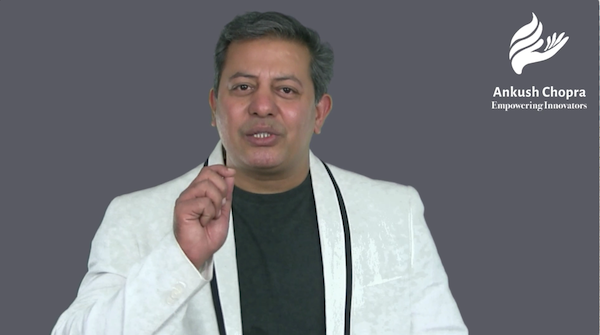We all make several mistakes in reading people but some of them are predictable. In this video, I share one method that will help you avoid making a common mistake in reading people.
For those who would rather read than watch the video, the transcript is below:
Transcript
Hi, I am Ankush Chopra.You know that sometimes we all make mistakes in reading other people. You may have made this mistake in reading someone or maybe someone read you wrong. You were at the receiving end in a situation. Let’s find out how we can avoid making mistakes in reading people.
Take A Test Yourself
What would you say about a person who does as follows: He is walking in the park and sees an old lady who has tripped on the ground and is in distress. He sees her but walks past her hurrying as he gets closer to her. What would you say about her?
Maybe he is a selfish person? Maybe he is a lesser human than you are? Many people would read this situation by attributing the action to the personality of the person.
The Fundamental Error You Make
And when they do this they make an error. Social psychologists call this error the Fundamental Attribution Error. To understand this better let me take you through the experiment that led to this finding.
How Good Are the Good Samaritans?
Scientists used a group of people from Princeton Theological Seminary for this experiment and told them that they will be a part of a study about religious education and vocation. They were told that they would fill some questionnaires and then give a talk in a nearby room. Half the people were told they would give a talk about types of jobs for seminary graduates and the other half were told they would talk about the parable of the good samaritan.
After each participant filled the form he or she was told one of the three things.
One group was told: “you are late, please hurry to the nearby room”. They are waiting for your talk.
The second group was told “the assistant is ready for you, so please go right over”
And the third group was told “it will be a few minutes before they are ready for you, but you might as well head over there now’
And on the way, each participant saw a distressed man in the doorway, doubled over, coughing with eyes closed.
The Results of the Experiment
The results of this study showed that the more hurried the subject was, the less he or she would stop to help the distressed man. 63% of people in low hurry helped, 45% people in medium hurry group helped but only 10% in high hurry group helped.
Also, the subject of talk they were going o give made a difference. 53% of people who were going to talk about good Samaritan stopped to help but only 29% of people who were going o talk about jobs stopped.
The Corporate Context
What this tells us is that people behave because of the situations they are in. But observers attribute the actions of a person entirely to the personality traits of that person.
It also tells us that the context is a powerful influencer of people’s actions.
You know that business conditions, especially in the corporate world, can create a powerful influence on anyone’s actions.
How to Become A Better Reader of People?
So next time you jump to make a conclusion about someone, do step back and consider if the environmental conditions could be responsible for his actions? This simple step would make you a superior reader of people.
More on Thinking
If you liked this video, you may also like the following similar resources from this website:





Please note: I reserve the right to delete comments that are offensive, or off-topic. If in doubt, read my Comments Policy.